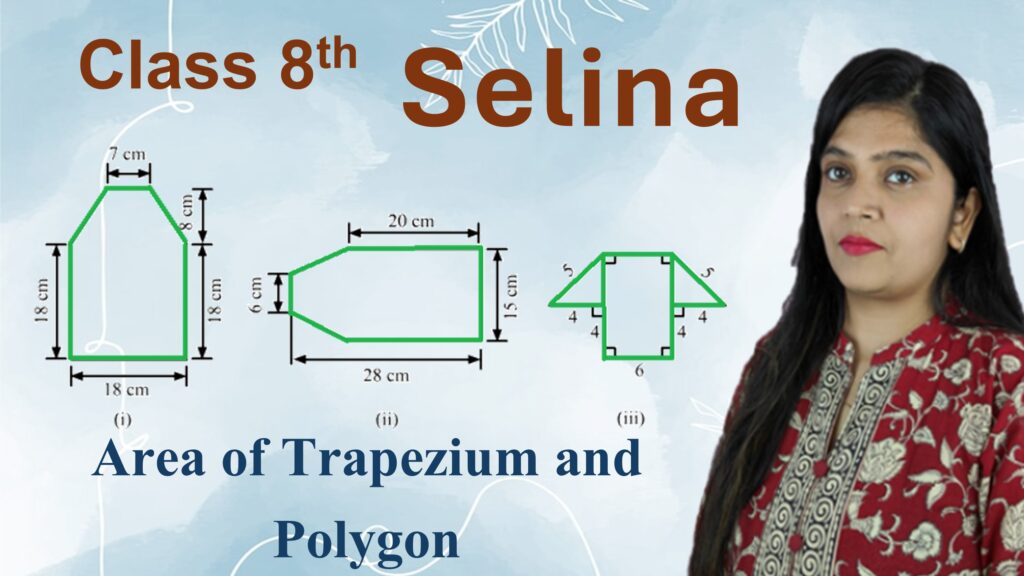Exercise: 4-B
Q1: Which of the following fractions are in simplest form?
Step 1: Find the HCF of numerator and denominator using division method. If HCF = 1, fraction is in simplest form.
i. \(\frac{21}{40}\)
40 | 21
-0 ← 40 × 0 = 0
----
21 | 40 ← swap divisor and remainder for next step
-21 ← 21 × 1 = 21
----
19 | 21 ← swap divisor and remainder for next step
-19 ← 19 × 1 = 19
----
2 | 19 ← swap divisor and remainder for next step
-18 ← 2 × 9 = 18
----
1 | 2 ← swap divisor and remainder for next step
-2 ← 1 × 2 = 2
----
0
Explanation: Last non-zero remainder is 1, so HCF(21,40) = 1.
Answer: \(\frac{21}{40}\) is in simplest form.
ii. \(\frac{35}{49}\)
49 | 35
-0 ← 49 × 0 = 0
----
35 | 49 ← swap divisor and remainder for next step
-35 ← 35 × 1 = 35
----
14 | 35 ← swap divisor and remainder for next step
-28 ← 14 × 2 = 28
----
7 | 14 ← swap divisor and remainder for next step
-14 ← 7 × 2 = 14
----
0
Explanation: Last non-zero remainder is 7, so HCF(35,49) = 7.
Answer: \(\frac{35}{49}\) is NOT in simplest form.
iii. \(\frac{42}{54}\)
54 | 42
-0 ← 54 × 0 = 0
----
42 | 54 ← swap divisor and remainder for next step
-42 ← 42 × 1 = 42
----
12 | 42 ← swap divisor and remainder for next step
-36 ← 12 × 3 = 36
----
6 | 12 ← swap divisor and remainder for next step
-12 ← 6 × 2 = 12
----
0
Explanation: Last non-zero remainder is 6, so HCF(42,54) = 6.
Answer: \(\frac{42}{54}\) is NOT in simplest form.
iv. \(\frac{64}{81}\)
81 | 64
-0 ← 81 × 0 = 0
----
64 | 81 ← swap divisor and remainder for next step
-64 ← 64 × 1 = 64
----
17 | 64 ← swap divisor and remainder for next step
-51 ← 17 × 3 = 51
----
13 | 17 ← swap divisor and remainder for next step
-13 ← 13 × 1 = 13
----
4 | 13 ← swap divisor and remainder for next step
-12 ← 4 × 3 = 12
----
1 | 4 ← swap divisor and remainder for next step
-4 ← 1 × 4 = 4
----
0
Explanation: Last non-zero remainder is 1, so HCF(64,81) = 1.
Answer: \(\frac{64}{81}\) is in simplest form.
v. \(\frac{56}{65}\)
65 | 56
-0 ← 65 × 0 = 0
----
56 | 65 ← swap divisor and remainder for next step
-56 ← 56 × 1 = 56
----
9 | 56 ← swap divisor and remainder for next step
-54 ← 9 × 6 = 54
----
2 | 9 ← swap divisor and remainder for next step
-8 ← 2 × 4 = 8
----
1 | 2 ← swap divisor and remainder for next step
-2 ← 1 × 2 = 2
----
0
Explanation: Last non-zero remainder is 1, so HCF(56,65) = 1.
Answer: \(\frac{56}{65}\) is in simplest form.
vi. \(\frac{23}{92}\)
92 | 23
-0 ← 92 × 0 = 0
----
23 | 92 ← swap divisor and remainder for next step
-92 ← 23 × 4 = 92
----
0
Explanation: Last non-zero remainder is 23, so HCF(23,92) = 23.
Answer: \(\frac{23}{92}\) is NOT in simplest form.
vii. \(\frac{102}{119}\)
119 | 102
-0 ← 119 × 0 = 0
----
102 | 119 ← swap divisor and remainder for next step
-102 ← 102 × 1 = 102
----
17 | 102 ← swap divisor and remainder for next step
-102 ← 17 × 6 = 102
----
0
Explanation: Last non-zero remainder is 17, so HCF(102,119) = 17.
Answer: \(\frac{102}{119}\) is NOT in simplest form.
viii. \(\frac{91}{114}\)
114 | 91
-0 ← 114 × 0 = 0
----
91 | 114 ← swap divisor and remainder for next step
-91 ← 91 × 1 = 91
----
23 | 91 ← swap divisor and remainder for next step
-69 ← 23 × 3 = 69
----
22 | 23 ← swap divisor and remainder for next step
-22 ← 22 × 1 = 22
----
1 | 22 ← swap divisor and remainder for next step
-22 ← 1 × 22 = 22
----
0
Explanation: Last non-zero remainder is 1, so HCF(91,114) = 1.
Answer: \(\frac{91}{114}\) is in simplest form.
Q2: Reduce each of the following fraction to its lowest terms:
Step 1: Find prime factors of numerator and denominator.
Step 2: Cancel out the common prime factors.
Step 3: Write the simplified fraction.
i. \(\frac{27}{36}\)
Prime factors:
\(27 = 3 \times 3 \times 3 = 3^3\)
\(36 = 2 \times 2 \times 3 \times 3 = 2^2 \times 3^2\)
Cancel common factors \(3^2\):
\[
\frac{3^3}{2^2 \times 3^2} = \frac{3^{3-2}}{2^2} = \frac{3}{4}
\]Answer: \(\frac{27}{36} = \frac{3}{4}\)
ii. \(\frac{45}{54}\)
Prime factors:
\(45 = 3 \times 3 \times 5 = 3^2 \times 5\)
\(54 = 2 \times 3 \times 3 \times 3 = 2 \times 3^3\)
Cancel common factors \(3^2\):
\[
\frac{3^2 \times 5}{2 \times 3^3} = \frac{5}{2 \times 3} = \frac{5}{6}
\]Answer: \(\frac{45}{54} = \frac{5}{6}\)
iii. \(\frac{38}{95}\)
Prime factors:
\(38 = 2 \times 19\)
\(95 = 5 \times 19\)
Cancel common factor 19:
\[
\frac{2 \times 19}{5 \times 19} = \frac{2}{5}
\]Answer: \(\frac{38}{95} = \frac{2}{5}\)
iv. \(\frac{58}{87}\)
Prime factors:
\(58 = 2 \times 29\)
\(87 = 3 \times 29\)
Cancel common factor 29:
\[
\frac{2 \times 29}{3 \times 29} = \frac{2}{3}
\]Answer: \(\frac{58}{87} = \frac{2}{3}\)
v. \(\frac{85}{153}\)
Prime factors:
\(85 = 5 \times 17\)
\(153 = 3 \times 3 \times 17 = 3^2 \times 17\)
Cancel common factor 17:
\[
\frac{5 \times 17}{3^2 \times 17} = \frac{5}{3^2} = \frac{5}{9}
\]Answer: \(\frac{85}{153} = \frac{5}{9}\)
vi. \(\frac{105}{168}\)
Prime factors:
\(105 = 3 \times 5 \times 7\)
\(168 = 2 \times 2 \times 2 \times 3 \times 7 = 2^3 \times 3 \times 7\)
Cancel common factors \(3\) and \(7\):
\[
\frac{3 \times 5 \times 7}{2^3 \times 3 \times 7} = \frac{5}{2^3} = \frac{5}{8}
\]Answer: \(\frac{105}{168} = \frac{5}{8}\)
vii. \(\frac{117}{143}\)
Prime factors:
\(117 = 3 \times 3 \times 13 = 3^2 \times 13\)
\(143 = 11 \times 13\)
Cancel common factor 13:
\[
\frac{3^2 \times 13}{11 \times 13} = \frac{3^2}{11} = \frac{9}{11}
\]Answer: \(\frac{117}{143} = \frac{9}{11}\)
viii. \(\frac{135}{150}\)
Prime factors:
\(135 = 3 \times 3 \times 3 \times 5 = 3^3 \times 5\)
\(150 = 2 \times 3 \times 5 \times 5 = 2 \times 3 \times 5^2\)
Cancel common factors \(3\) and \(5\):
\[
\frac{3^3 \times 5}{2 \times 3 \times 5^2} = \frac{3^{3-1} \times 5^{1-2}}{2} = \frac{3^2}{2 \times 5} = \frac{9}{10}
\]Answer: \(\frac{135}{150} = \frac{9}{10}\)






Leave a Comment